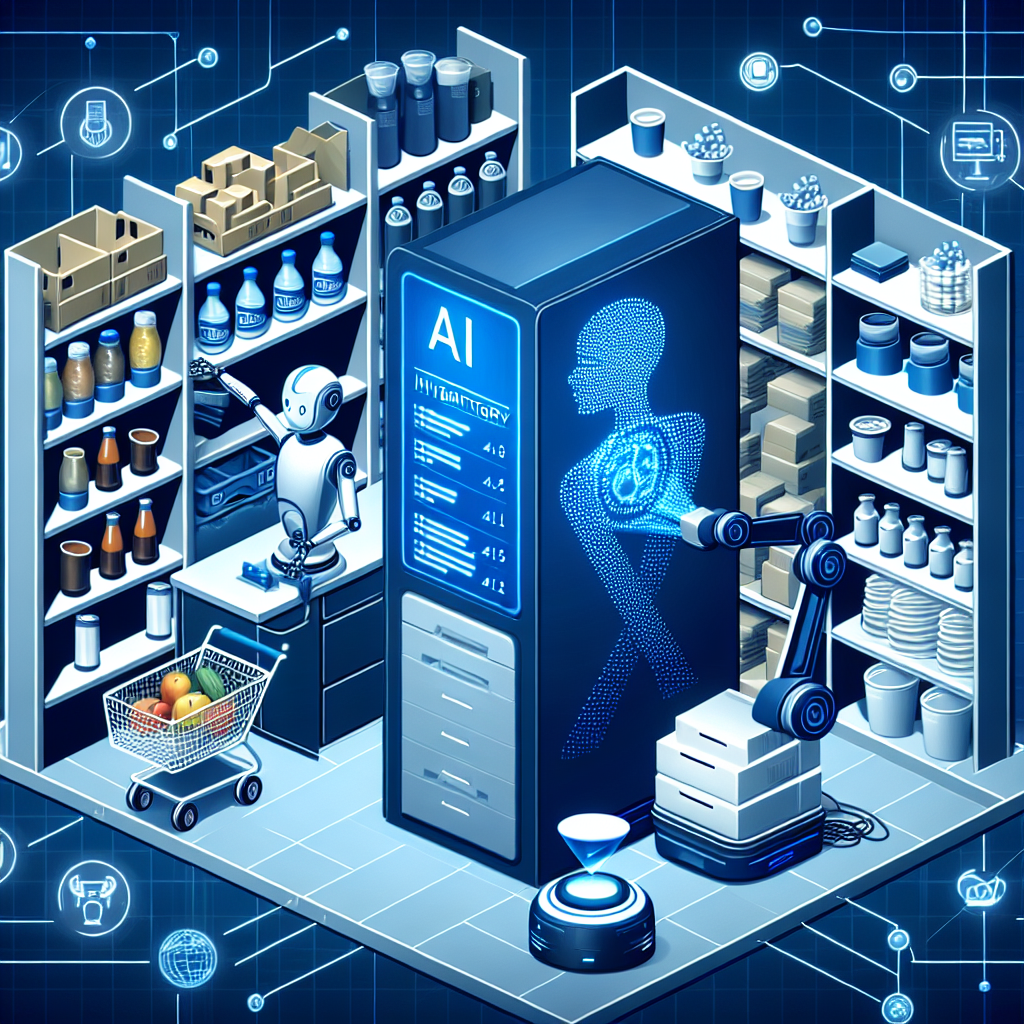In the hospitality industry, inventory management plays a crucial role in ensuring smooth operations and maximizing profitability. From managing supplies for the kitchen to tracking linens and towels for housekeeping, keeping track of inventory can be a complex and time-consuming task. This is where artificial intelligence (AI) solutions come into play, revolutionizing the way inventory management is done in the hospitality sector.
AI solutions for inventory management in the hospitality industry utilize advanced algorithms and machine learning techniques to analyze data, predict demand, optimize stock levels, and automate replenishment processes. By harnessing the power of AI, hotels, restaurants, and other hospitality businesses can streamline their inventory operations, reduce costs, and improve overall efficiency.
Benefits of AI Solutions for Inventory Management in the Hospitality Industry
1. Predictive Analytics: AI can analyze historical data, market trends, and other relevant factors to predict demand for specific items. By accurately forecasting demand, hospitality businesses can avoid overstocking or stockouts, leading to optimized inventory levels and reduced wastage.
2. Real-Time Monitoring: AI-powered inventory management systems can provide real-time updates on stock levels, order status, and consumption patterns. This enables businesses to make informed decisions quickly, minimizing the risk of running out of essential items or tying up capital in excess inventory.
3. Automated Replenishment: AI can automate the process of replenishing inventory by generating purchase orders, tracking deliveries, and updating stock levels in real time. This reduces the manual effort required to manage inventory and ensures that supplies are always available when needed.
4. Cost Optimization: By optimizing stock levels, reducing wastage, and automating replenishment processes, AI solutions can help hospitality businesses cut costs and improve profitability. With AI, businesses can identify cost-saving opportunities, negotiate better deals with suppliers, and make data-driven decisions to drive efficiency.
5. Enhanced Customer Experience: Efficient inventory management is essential for providing a seamless customer experience in the hospitality industry. By ensuring that supplies are always available and orders are fulfilled promptly, AI solutions can help businesses meet customer expectations and build loyalty.
AI Solutions for Inventory Management in Action
One example of AI solutions for inventory management in the hospitality industry is the use of demand forecasting algorithms to predict customer preferences and optimize menu offerings. By analyzing data from past sales, seasonal trends, and customer feedback, AI can recommend which items to stock, when to offer discounts, and how to adjust pricing based on demand.
Another application of AI in inventory management is the use of image recognition technology to track inventory levels in real time. By installing cameras in storage areas or using handheld devices equipped with AI software, businesses can automatically count and monitor stock levels, identify misplaced items, and detect theft or shrinkage.
AI-powered chatbots are also being used in the hospitality industry to streamline the ordering process and improve inventory management. By integrating chatbots with inventory management systems, businesses can allow customers to place orders, track deliveries, and provide feedback through a conversational interface, reducing the need for manual intervention and improving efficiency.
FAQs about AI Solutions for Inventory Management in the Hospitality Industry
Q: How much does it cost to implement AI solutions for inventory management in a hospitality business?
A: The cost of implementing AI solutions for inventory management in the hospitality industry can vary depending on the size of the business, the complexity of the system, and the vendor chosen. Some AI solutions may require upfront investment in hardware, software, and training, while others may offer subscription-based pricing or pay-per-use models. It is important to evaluate the potential ROI of AI solutions and choose a vendor that aligns with the business’s budget and requirements.
Q: How long does it take to see results from implementing AI solutions for inventory management?
A: The timeline for seeing results from implementing AI solutions for inventory management in the hospitality industry can vary depending on the complexity of the system, the quality of the data, and the level of integration with existing processes. In some cases, businesses may start seeing improvements in inventory accuracy, cost savings, and efficiency within a few weeks of implementation, while others may take several months to fully realize the benefits of AI. It is important to set clear goals, monitor progress, and continuously optimize AI solutions to maximize their impact.
Q: Are AI solutions for inventory management secure and compliant with data privacy regulations?
A: Security and data privacy are critical considerations when implementing AI solutions for inventory management in the hospitality industry. Businesses should work with reputable vendors that have robust security measures in place to protect sensitive data, comply with industry regulations, and ensure the confidentiality of customer information. It is important to conduct thorough due diligence, assess the vendor’s security practices, and implement safeguards such as encryption, access controls, and regular security audits to mitigate risks and maintain compliance.
Q: Can AI solutions for inventory management be customized to meet the specific needs of a hospitality business?
A: Yes, AI solutions for inventory management can be customized to meet the specific needs of a hospitality business, such as the type of inventory, the size of the operation, and the industry regulations. Vendors may offer configurable options, modular features, and integration capabilities to tailor AI solutions to the unique requirements of each business. It is important to work closely with the vendor, provide feedback, and collaborate on the design and implementation of AI solutions to ensure that they align with the business’s goals and deliver maximum value.
In conclusion, AI solutions for inventory management are transforming the way hospitality businesses manage their supplies, optimize stock levels, and streamline replenishment processes. By leveraging the power of AI, businesses can predict demand, monitor inventory in real time, automate replenishment, cut costs, and enhance the customer experience. With the right strategy, investment, and implementation, AI solutions can help hospitality businesses stay competitive, efficient, and profitable in an increasingly complex and dynamic market.

